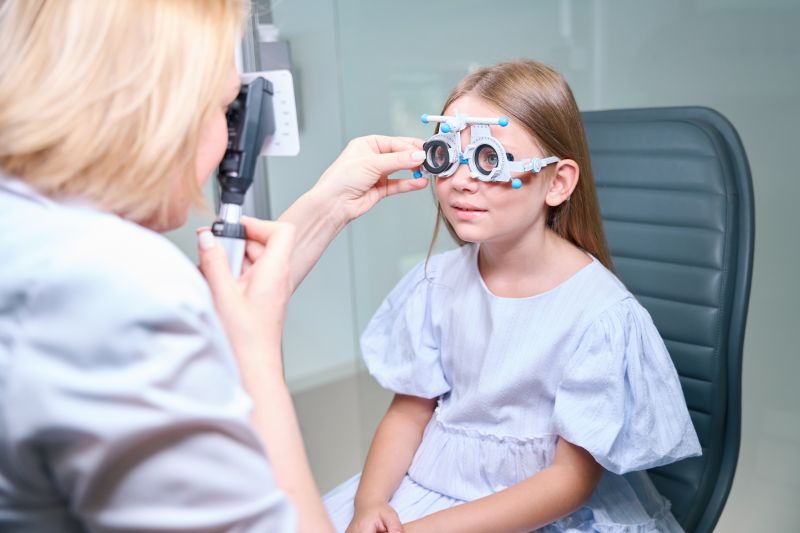Ulster University Researchers from the Centre for Optometry and Vision Science today on World Sight Day have launched a free app to help optometrists identify and manage increasing short-sightedness, known as myopia.
The new app called ‘PreMO’ (Predicting Myopia Onset and Progression) provides optometrists with an evidence-based way to quickly and confidently categorise a patient’s risk of myopia and its progression using simple measurements taken in the eye clinic.
The app is based on a novel data-driven approach through research by Ulster University and findings published in peer-reviewed international journals, which will support eye care providers, their patients, and parents/carers in managing short-sightedness.
Specialists at Ulster University collaborated with software experts at Wolffsohn Research and collaborators at Aston University, Birmingham to develop and test the app which has the ability to produce an instant summary of patient-friendly data that can be shared with parents and children through individualised patient reports, empowering parents to better understand their child’s visual status and supporting optometrists to choose the best advice and treatment options.
The app can also identify younger patients who are at risk of myopia, even when they are not yet shortsighted. Once identified, clinicians can use the app as an education tool and work with caregivers to encourage lifestyles that minimise the risk and explain the treatments available, such as myopia control spectacles and contact lenses.
Professor Kathryn J Saunders, School of Biomedical Sciences & Centre for Optometry and Vision Science Research, Ulster University said: “Our research conducted at Ulster University has shown that myopia known as short-sightedness, is more than twice as common now as it was 50 years ago and that children in the UK are becoming short-sighted earlier than in previous decades.
“Myopia is predicted to affect half the world’s population by 2050 and the World Health Organisation has declared myopia a global health concern, which was a key factor in the rationale behind creating this specialist software, as it will have a significant impact on helping to prevent or delay the onset of myopia.
“Myopia, short sight, usually starts in primary school years because the eye grows too long and the amount of myopia usually increases over time as the child’s eye continues to grow into teenage years. Until recently, managing patients with myopia was a simple case of providing increasingly strong glasses or contact lenses to provide clear vision. While it is normal, if inconvenient, for prescriptions to get stronger and stronger over time, this increase is worrying as higher levels of myopia are associated with potentially sight-threatening eye disease later in life.
“However, there are now special ‘myopia control’ spectacles and contact lenses that optometrists can prescribe to restrict increasing myopia. Research has also shown that before myopia starts, making lifestyle modifications can help prevent or delay the onset of myopia. So, we are delighted to launch the PreMO app which will help optometrists identify and support children with myopia - making sure they get the best advice and treatment options”
Aston University Head of Optometry, Professor James Wolffsohn said: “After many years of research into the impact of myopia, we now have treatments to slow its progression and even decrease how often it occurs. The app will support clinicians in predicting those children who will go myopic, to track their progress with myopia control treatments, to provide better communication to the child and their parents and guardians, and to personalise their eye health.”
The app ‘PreMO’ will be launched to an audience of professional eye care colleagues at an event in Belfast on World Sight Day, Thursday 12 October.
PreMO is available free to eye care clinicians at https://premo-live.web.app/.

